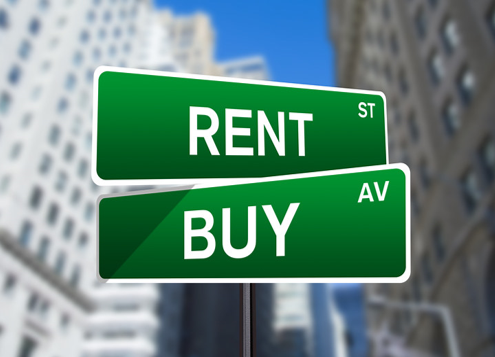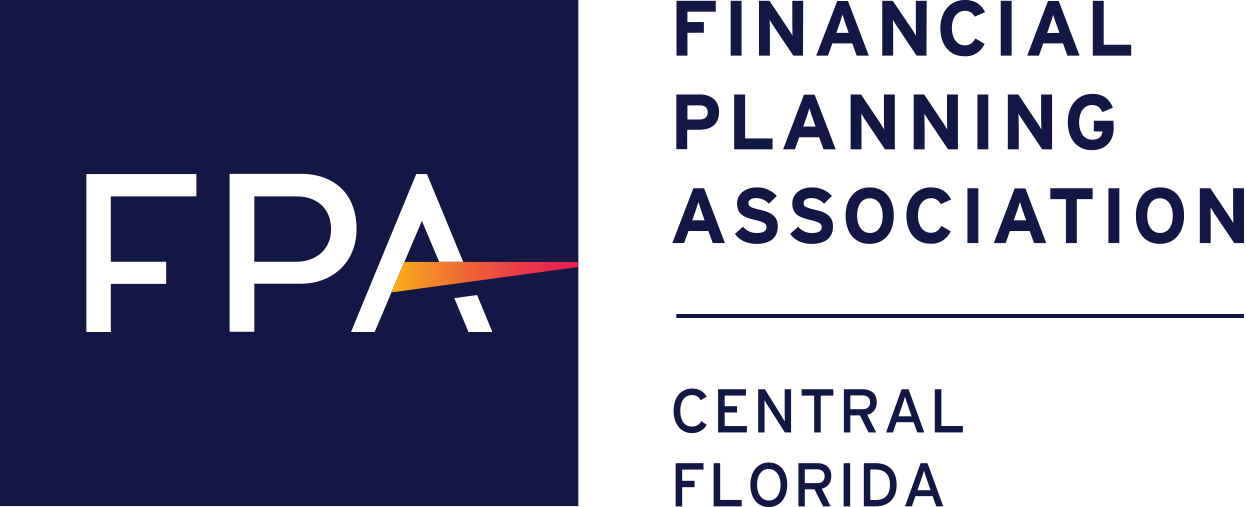
TO RENT OR OWN A HOME? GUIDANCE TO DECIDE WHAT’S BEST FOR YOU

Owning a home has long been considered an integral part of the American Dream, something to aspire to and, at least in general terms, a viable course of action for people seeking to own a hard asset whose value potentially may appreciate significantly over time. But changing market dynamics — rising home prices, uncertainty about interest rates and the like — along with peoples’ shifting priorities have raised new questions about home ownership and how exactly it fits in today’s version of the American Dream.
This article is the first in a series of four developed by the Financial Planning Association® (FPA®) to provide answers to some of those pressing questions by exploring issues such as purchasing vs. renting a home, the home purchasing process for first-time home buyers, maximizing the value of a home as an asset, and ways to fund a home remodel/renovation.
The first article tackles the “Rent or own?” question, with insight from CERTIFIED FINANCIAL PLANNER™ professionals who are members of FPA.
What’s best, owning a home or renting one?
The answer: It depends — on a person’s stage in life, geographic location, priorities, financial circumstances and other considerations.
First, some facts to consider. In its 2020 Rental Affordability Report, ATTOM Data Solutions found that owning a median-priced, three-bedroom home is more affordable than renting a three-bedroom property in 455, or 53%, of the 855 U.S. counties it analyzed. It also found that home ownership is “more affordable mainly in lightly populated counties and renting more affordable in more populous suburban or urban areas.”
Those
figures suggest that before deciding which course to take, it’s important for
people to research the real estate market dynamics in the specific area in
which they are considering buying or renting a home, and consult a realtor or
rental agent if they want more insight into those dynamics. “People need to dig
deep so they know the actual cost of owning a home in the area they’re
considering,” says FPA member and CERTIFIED FINANCIAL PLANNER™
professional Henry Hoang of Bright Wealth Advisors in Newport Beach, CA. “Run
multiple scenarios that are realistic and conservative to form a sound conclusion.
When running the scenarios, you need to plan for many what-if’s such as home
repairs, an unexpected decrease in income, or additional expenses from a
growing family. The more clarity you have when running projections, the higher
your probability in making the correct decision.”
To find that clarity, consider engaging a financial professional to help run the numbers, weigh all the factors and guide you to a sound decision. To find a CERTIFIED FINANCIAL PLANNER™ professional who works in your area, visit FPA’s searchable national database at www.PlannerSearch.org.
You could be a good candidate to BUY a home…if you intend to stay in the home for five to seven years or longer; if you want to own an asset whose value will potentially increase over the long term; if you want to take advantage of the prevailing low mortgage rate environment; if you have the patience, perspective and wherewithal to weather real estate market cycles in which the value of the home could potentially drop substantially (but also appreciate substantially); if you have the comfort level, financial wherewithal and credit history to take on a mortgage, make monthly payments and pay off the loan in a timely fashion; if you have the resources and the wherewithal to maintain the home, covering the cost of repairs and upgrades as needed, as well as other potential costs, such as homeowner association fees; if you are able to take advantage of tax breaks that come with home ownership; if you plan to treat the home as a short-term investment, to fix up and sell; and, if you want an asset whose value you can tap to generate liquidity for other needs.
Purchasing a home is a major commitment, financially, logistically and even psychologically. Financially, today’s relatively low mortgage rates can make purchasing a home more appealing and attainable. The real estate website Zillow predicts that mortgage rates will remain near their current levels “for the bulk of 2020.”
Federal tax policy has long allowed homeowners who itemize their tax deductions to claim the mortgage interest and property taxes they pay each year as tax deductions. However, recent tax policy developments limit the deductibility of those expenses, thus making home ownership financially less appealing for some.
If your plan is to stay in the home for at least five to seven years, owning a home “is usually the better choice,” says FPA member John R. Power, CFP® based in Walpole, MA. “It becomes a home and not just a place to live. It typically gains value over time, but will almost always gain in equity. And it may actually be less costly than a rental of equivalent size” in terms of total cost of ownership.
Home ownership comes with responsibility for upkeep and repairs. People who are willing to invest the time and money to maintain and perhaps improve their home may find they can earn a significant return on that investment, as real estate assets generally tend to appreciate in value over the long term, particularly properties that are well-maintained and/or improved (such as via a remodel). There’s also the short-term fix-and-flip option, where people purchase a home, upgrade it and sell it with the goal of earning a quick profit on the sale.
Though home values do tend to increase over time, homeowners must be aware that real estate markets are cyclical. There’s a very real risk that their home could lose value. But unless they sell the home when its value is depressed, that drop in value is only a number on paper. The historical cyclicality of real estate markets suggests that the home will eventually regain lost value and continue to appreciate.
As a home appreciates in value, it gives the homeowner the ability to tap that added value — called equity — and turn it into a cash resource. The equity in a home can be used to fund a home equity loan or home equity line of credit, each of which can be used constructively, such as to help fund a home remodel project, a child’s education or to meet an emergency cash need.
You could be a good candidate to RENT a home…if you intend to move within five to seven years; if you lack the financial means and/or desire to take on a substantial debt; if your credit score/credit history makes it difficult to secure a mortgage with reasonable terms you can afford; if you’re moving to a new area and want to get a feel for it before committing to buying a home there; if you prefer not to assume responsibility for maintaining and repairing a home; if you’re willing to live according to the rules established by the property owner/landlord; if you’re comfortable assuming the risk that your rent could increase year to year, sometimes significantly, along with the risk that the landlord from which you rent (or the property manager) may not be as responsive as you expect in maintaining/repairing the home, as well as the risk that the landlord could decide to terminate your lease with little notice; if you prefer to use your money for other constructive purposes, such as to invest or to save toward retirement or a child’s education, and lack the resources to do all these at once.
Before determining which path to take, first consider your expectations with regard to where you live. “If you are not planning to live in the new home for longer than five years,” says Hoang, “the safer bet is to rent. With all the costs associated with buying and selling a home combined with high levels of economic uncertainty today, most people would be better off renting if they are looking at a shorter-term time horizon.”
From a cost perspective, rent increases are a fact of life for many renters. Zillow expects annual rent appreciation to hover around 2.3% for the first part of 2020. However, “by the end of [2020], we expect annual rent growth to fall below two percent.” Still, renters must account for the possibility of annual increases in monthly rent.
Don’t let stigmas about renting impact your decision, says FPA member Jake Northrup, CFP®, CFA, CSLP® who heads the financial planning firm Experience Your Wealth in Bristol, RI. “The belief that ‘rent is throwing money away’ is so far from true…Buying a home isn’t always the right thing to do. It ties back to what you value and how it impacts your other priorities.”
He suggests that before making the call on whether to rent or buy a home, that people consider opportunity cost: what they would otherwise do with the money required for the down-payment, mortgage closing costs and other costs associated with buying a home. Perhaps they’d prefer to use it in pursuit of some other important goal, such as paying for graduate school, paying down a burdensome college loan or large credit card debt, building out an investment portfolio, starting a business or even funding a year-long sabbatical from work, for example.
Lifestyle flexibility is another factor to weigh. “Life can change quick and you don’t want to feel held back by a certain asset,” Northrup adds. “You may want to live in a few places, change jobs, start a business, etc. Renting allows you to adjust your housing situation to directly accommodate changes in your financial situation. The bank is not going to say, ‘Hey, you can start paying 20% less in mortgage payments so you can start a business.’ However, you could move to a new area or reduce your space to pay 20% less in rent so you can start that business.”
